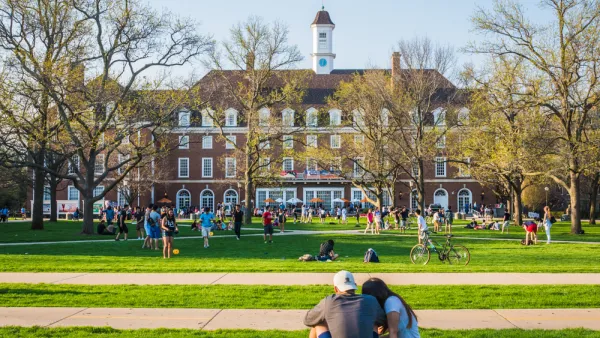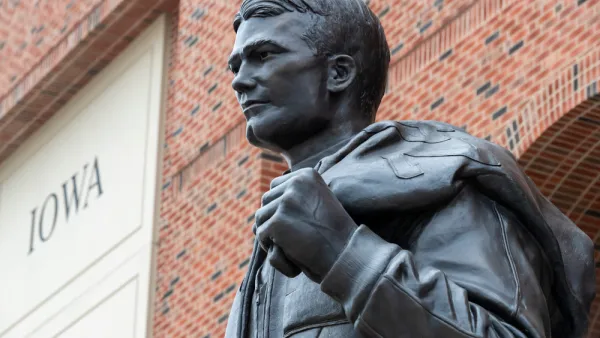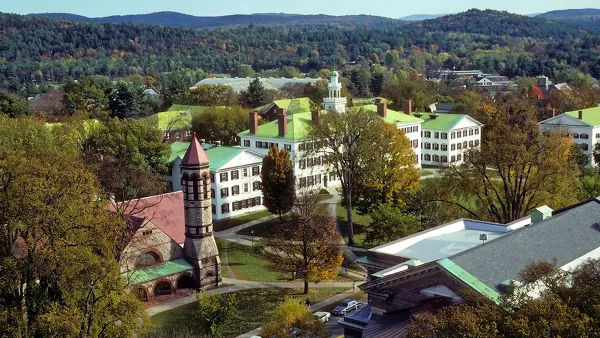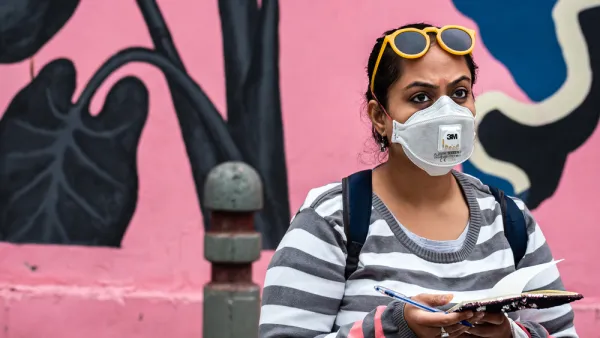Irvin Dawid discovered Planetizen when a classmate in an urban planning lab at San Jose State University shared it with him in 2003. When he left San Jose State that year, he took with him an interest in Planetizen, if not the master's degree in urban & regional planning.
As a long-time environmental activist, he formed the Sustainable Land Use committee for his local Sierra Club chapter and served six years on the Bay Area Air Quality Management District’s Advisory Council from 2002-2008. He maintains his interest in air quality by representing Sierra Club California on the Clean Air Dialogue, a working group of the Calif. Environmental Dialog representing business, regulatory and public health/environmental interests.
Major interests include transportation funding, e.g., gas taxes, vehicle miles traveled (VMT) fees, road tolls and energy subsidies that lead to unlevel playing fields for more sustainable choices.
He hails from Queens (Bayside) and Long Island (Great Neck); received an AAS in Fisheries & Wildlife Technology from SUNY Cobleskill and a B.S. from what is now Excelsior College.
After residing for three years on California’s North Coast, he’s lived on the San Francisco Peninsula since 1983, including 24 years in Palo Alto. Home is now near downtown Burlingame, a short bike-ride to the Caltrain station.
He’s been car-free since driving his 1972 Dodge Tradesman maxi-van, his means to exit Long Island in 1979, to the junkyard in 1988.
Major forms of transportation: A 1991 'citybike' and monthly Caltrain pass, zone 2-2. "It's no LIRR, but it may be the most bike friendly train in America."
Irvin can be reached at [email protected]

Widespread Coronavirus Testing Critical for College Reopenings, But...
The University of Illinois at Urbana-Champaign developed a high-frequency coronavirus testing system that would be the envy of an country or corporation, testing students, faculty and staff twice a week, but it still failed to stem a major outbreak.

Coronavirus College Clusters Stress Town and Gown Relationship
College towns that have been observing public health guidelines and seen relatively few COVID-19 cases are now seeing infections spike as young people return to take classes. The New York Times has been tracking cases in colleges and college towns.

Coronavirus Wastewater Testing Yields Positive Results at Universities
Wastewater testing is being hailed as a success at the University of Arizona, credited for stopping a COVID outbreak. In Utah, wastewater analysis forced almost 300 students to quarantine for four days while awaiting their test results.

College Campuses Offer Opportunity to Demonstrate COVID Containment Strategies
As college students return for the fall semester, college towns are rightfully concerned about an influx of COVID cases, yet self-contained campuses have the potential to succeed where local and state governments may have failed.

The Changing Geography of the Pandemic
During the pandemic's first phase in March and April, the Northeast was devastated by COVID-19. After Memorial Day, the surge was in the South and West. As cases decrease nationwide, they are now spiking in the Midwest, particularly North Dakota.

























